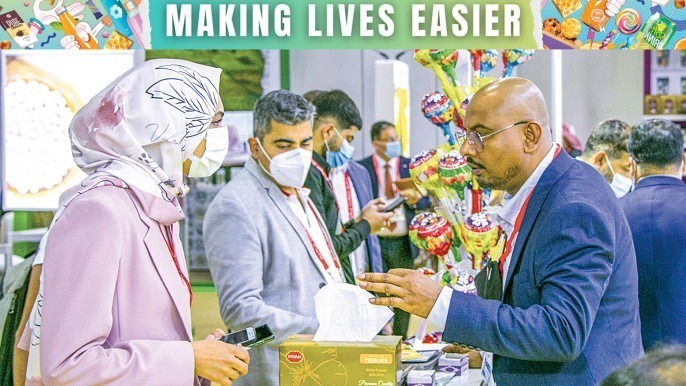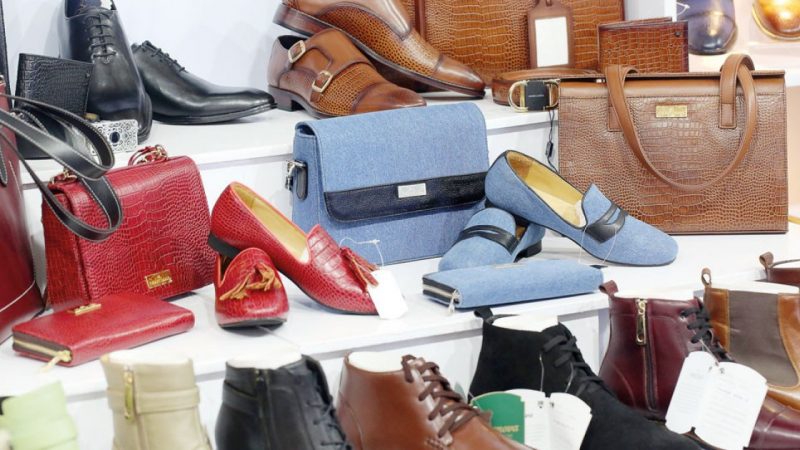Export potential of Bangladeshi FMCG goods remains untapped

While Bangladesh’s FMCG sector has made strides in recent years, substantial hurdles remain. Addressing these challenges could unlock new opportunities for export growth and economic development
Bangladesh has yet to fully capitalise on the potential for exporting Fast-Moving Consumer Goods (FMCGs) manufactured in the country. Despite the significant growth potential in the global market, several challenges stand in the way.
Industry experts note several barriers to realising this potential, including insufficient infrastructure and policy support, high costs and duties on raw materials, limited investment in research, development and innovation, as well as tariff and non-tariff barriers in certain export destinations.
Having such challenges, the food and agriculture sector export reached the $1 billion mark in 2021; however, it now faces challenges due to high freight costs and increased raw material prices, exacerbated by currency devaluation against the US dollar.
According to the Japan-based research organisation Global Information, Inc. (GII), the global FMCG market was valued at $107.46 billion in 2022 and is projected to grow from $111.39 billion in 2023 to $148.51 billion by 2031, reflecting a compound annual growth rate (CAGR) of 3.66% during the forecast period (2024-2031).
The FMCG sector includes food and beverages, toiletries, cleaning products, personal care and home care items; it has substantial potential to diversify Bangladesh’s export portfolio and reduce its dependence on the ready-made garments (RMG) industry.
Currently, Bangladesh exports in this sector are limited to a small range of products, such as tea, processed foods and toiletries. However, with strategic policies and targeted investments, the FMCG sector could expand its product offerings and enter new markets.
Developing uniquely Bangladeshi products and investing in research and development to enhance product quality and packaging would enable Bangladesh to compete more effectively with countries that already have a strong global presence.
Potential strategies include innovating herbal cosmetics using local herbs and imported ingredients, creating unique tea blends like organic or flavoured teas and expanding the processed food industry with value-added items like ready-to-eat meals, healthy snacks and convenience foods tailored for busy consumers across the globe.
Sector experts have noted that investments in innovation and local ingredient sourcing could be game-changers, unlocking significant export potential for Bangladesh in the global FMCG market.
In a recent conversation with The Business Standard, Shamima Akhter, the director of Corporate Affairs, Partnerships and Communications at Unilever Bangladesh Ltd, emphasised the vital role of innovation in expanding into export markets. She stated, “Innovation plays a crucial role in expanding business within export markets.”
Shamima highlighted the opportunity to develop new products using local ingredients and heritage items for these markets, leveraging global technology. She noted that both local manufacturers and multinational companies can pursue these innovations.
For example, Unilever Bangladesh has recently launched Vaseline Mosquito Defence in response to the demand for mosquito protection during dengue season, particularly for women and children. This product, developed through extensive research, nourishes the skin while providing up to eight hours of mosquito protection.
Enriched with Vaseline Jelly, it has been dermatologically tested and is safe for pregnant women and babies over two months old. “Now, Vaseline Mosquito Defence is also being exported to neighbouring and African countries,” Shamima added.
In India, Unilever has introduced Indulekha Ayurvedic Hair Oil, which incorporates local heritage and ingredients, proving to be a successful innovation.
Shamima also mentioned that using local turmeric could significantly enhance product innovation in export markets, as many consumers in Western countries are increasingly seeking its health benefits.
Echoing her sentiments, Malik Mohammed Sayeed, chief operating officer at Square Toiletries Limited, shared that the company has recently launched a line of herbal products made from a blend of local herbs and imported ingredients. With support from advanced technology and insights from international partners, this new product line has already found success in markets such as Malaysia, India and parts of Africa, with Dubai as the next target.
However, Sayeed noted that manufacturing personal care and home care items often requires up to 92% of imported raw materials, including minerals and chemicals, presenting a significant challenge for entering export markets.
Kamruzzaman Kamal, director of Marketing at Pran Group, shared that they have been exporting toiletries to Nepal, India and Gulf markets for the past two years. He pointed out that high duties on raw materials, inadequate local lab facilities and cuts in incentives are major barriers to competing in global markets.
In an exciting development, Indian multinational company Marico Bangladesh Ltd has opened a new manufacturing unit at the Bangabandhu Sheikh Mujib Shilpa Nagar in Chattogram, with a $26.72 million investment aimed at expanding its capacity. Marico plans not only to meet domestic demand for essential personal care products but also to enhance its export operations targeting Nepal, Bhutan, and the Middle East. Marico’s flagship brand, Parachute, continues to lead the market in Bangladesh, holding the largest share in the branded coconut oil category and “Made in Bangladesh” products are also exported to Nepal and India.
Unlocking export potential in the agro-based food industry
Bangladesh’s agro-based food industry is paving the way for unlocking export potential in global markets. The sector reached a significant milestone by achieving $1 billion in exports in 2020-21, although it now faces challenges such as high freight costs and rising raw material prices, exacerbated by currency devaluation against the US dollar.
The group accounts for a substantial portion of these exports, serving over 145 countries worldwide. They have received the National Export Trophy for their achievements since 1997. Kamruzzaman Kamal pointed out that India remains the largest export destination, despite some tariff and non-tariff barriers, while the Gulf market is a close second with considerable growth potential.
Kamal noted that rising prices for raw materials, including sugar, wheat and packaging materials, make it increasingly difficult to compete in export markets. Recent freight cost hikes have also posed challenges for timely shipping. Furthermore, cuts in cash incentives by the previous government have affected exporters’ competitiveness.
He mentioned that Bangladeshi exporters often have to travel to Singapore for certain lab tests, as there are no internationally recognised laboratories in the country to meet Western standards.
Kamal stressed that if the government provides adequate policy and infrastructure support, the sector has the potential to shine even brighter.
Similarly, Md Parvez Saiful Islam, COO at Square Food & Beverage Limited, pointed out that the embargo on exporting aromatic rice has impacted export performance, accounting for about 20% of each container’s exports. Since 1 July 2022, the Ministry of Commerce of Bangladesh has banned the export of aromatic rice, revoking export permissions for 41 companies.
Square Food & Beverage, which began exporting to South Korea in 2002, is now supplying products that meet international standards to over 30 countries, including Australia, Europe, North America, Africa and Asia.
It’s clear that while companies like Unilever, Pran Group and Square Group are making strides in exporting FMCG goods, numerous local companies are also exploring market opportunities, contributing to Bangladesh’s growing presence in the global FMCG market.
Source: The Business Standard | 31 October 2024 | Author: Jasim Uddin






